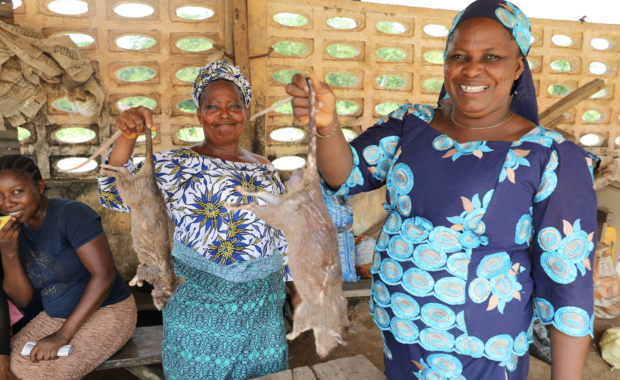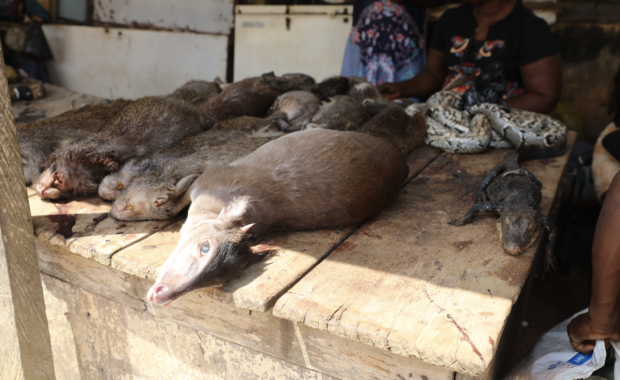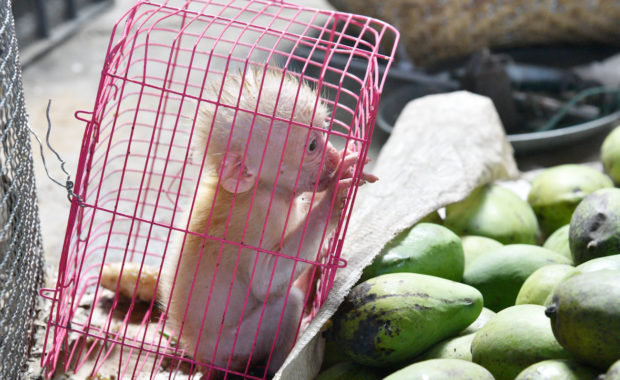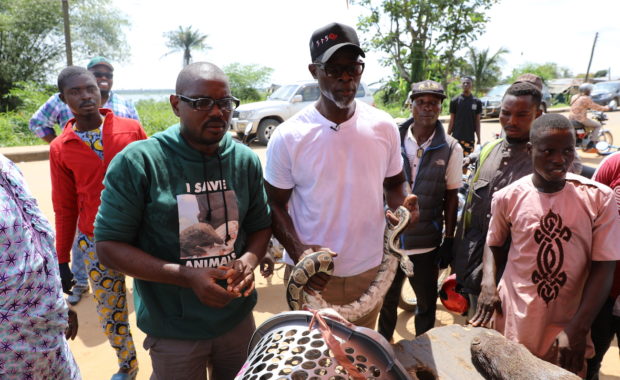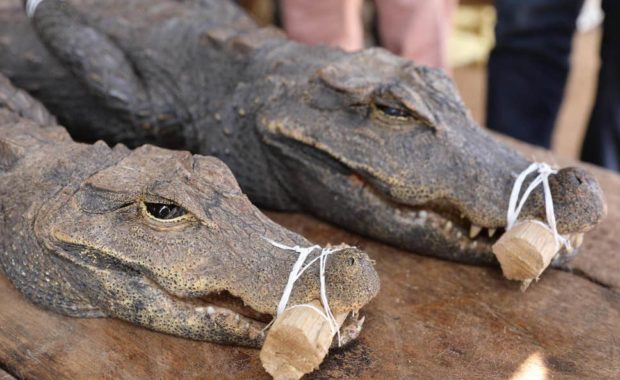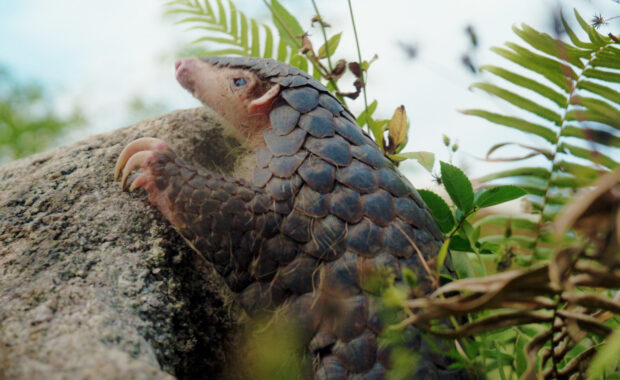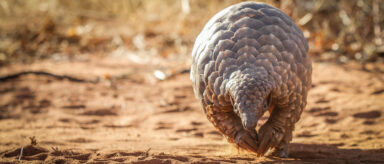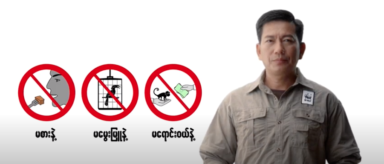Illegal bushmeat consumption poses widespread ecological, health and economic risks
Bushmeat consumption has been a feature of many African and Asian cultures for millennia. Historically, animals were primarily hunted for subsistence use in rural communities, but today they are increasingly sold commercially into densely populated urban centers and trafficked internationally to the United States and Europe. In Asia, some wild species are falsely believed to have medicinal properties, while others are considered luxury items thanks to their rarity and high price, drawing in those looking to showcase their wealth or close a business deal.
The illegal commercial wildlife and wild meat trade has reached unsustainable levels, depleting populations and putting many species on a path toward extinction. But the dangers extend well beyond threats to biodiversity and the economic losses from their potential disappearance. The health risks associated with live animal markets and the bushmeat trade have the potential to introduce new diseases that could cause enormous loss of human lives and huge economic impact.
- ~6 million
tons of bushmeat is extracted from the Amazon and the Congo Basin each year - One billion
Zoonotic diseases cause one billion cases of illness and millions of deaths every year - 60%
60 percent of emerging infectious diseases reported globally come from animals.
Making an Impact
In response to the COVID-19 pandemic, on February 24th, 2020, China adopted a decision to ban the consumption of most wild animals and to severely crack down on the illegal wildlife trade. In Vietnam, Prime Minister Nguyen Xuan Phuc has issued a directive on banning wildlife trade and consumption. But the risk is not confined to Asia: As Africa’s population is set to double by 2050 to 2.2 billion, urban areas will face many of the same public health risks as Chinese, Indonesian or Philippine cities where live animal markets are common.
With the current resolve at top levels of government in China and other countries affected by this pandemic to end or significantly restrict the wildlife trade, now is the moment to push forward on specific initiatives for effective and permanent action. We are working to permanently close wildlife markets in Asia and end urban bushmeat consumption of endangered species in Africa.
We remain hopeful that new regulations and strong enforcement will help put an end to the wildlife markets and trade and are committed to implementing key wildlife conservation strategies, including reducing demand, phasing out supply chains, taking wild meat off menus in restaurants, and developing new opportunities for local communities dependent on wildlife consumption. By collaborating on a common set of priorities, we believe we can mobilize an effective response on a global scale.

